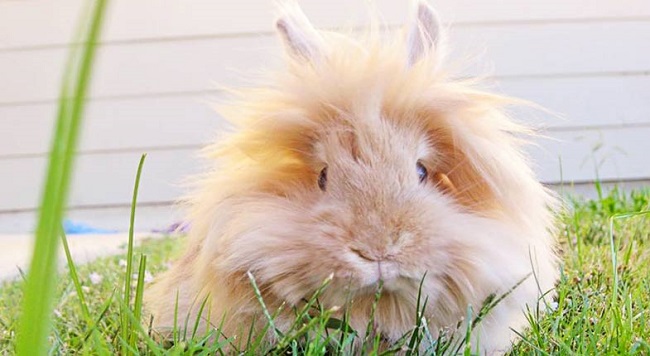Lion Lop bunnies, known for their charismatic, floppy ears and lion-like mane, are a favorite among rabbit enthusiasts.
They’re a crossbreed of Lionhead rabbits and Lop rabbits, blending the best features of both breeds into a unique and irresistible pet. This guide will walk you through everything you need to know about Lion Lop bunnies.

Understanding the Lion Lop Breed
Despite their exotic name, Lion Lop bunnies are small, reaching an average weight of 2.5 to 3.5 pounds. They’re renowned for their charmingly floppy ears, reminiscent of Lop rabbits, and their distinctive mane of longer hair around their heads, similar to Lionhead rabbits.
Read Also:
Personality Traits of Lion Lop Bunnies
Lion Lop bunnies inherit their playful, friendly, and sociable nature from both parent breeds. They enjoy exploring their surroundings, making them entertaining companions. However, they also appreciate quiet time and will enjoy curling up with their owners.
Housing and Environment for Lion Lop Bunnies
These bunnies need a spacious hutch or cage to accommodate their active lifestyles. They enjoy toys and chewables, which also help keep their teeth in good condition. Providing them with safe spaces to hop and run around is crucial for their health and well-being.
Diet and Nutrition for Lion Lop Bunnies
A healthy Lion Lop diet consists of high-quality rabbit pellets, fresh hay, vegetables, and water. Hay should make up the bulk of their diet as it helps keep their digestive system healthy.
Health Considerations for Lion Lop Bunnies
Lion Lop bunnies are generally healthy, but they can be prone to certain conditions, such as dental issues and ear infections. Regular veterinary check-ups and vaccinations can help ensure your bunny stays healthy.
Grooming Your Lion Lop Bunny
Lion Lops require regular grooming due to their longer hair, especially around the mane. Brushing them a few times a week will help prevent matting and hairballs.
Lifespan of Lion Lop Bunnies
On average, Lion Lop rabbits live between 7 to 10 years, making them a long-term commitment. Good nutrition, regular exercise, and routine veterinary care can contribute to your bunny’s lifespan.
Training Your Lion Lop Bunny
Lion Lops are intelligent and can be trained to understand basic commands and use a litter box. Use positive reinforcement techniques for a successful training experience.
Lion Lop Bunnies and Children
These bunnies can be excellent pets for children due to their friendly and gentle nature. However, always supervise interactions between children and rabbits to ensure the safety of both.
Lion Lop Bunnies and Other Pets
Lion Lop bunnies can generally get along well with other pets, provided the introduction is done slowly and safely. Remember, not all pets may be compatible, so monitor their interactions.
Choosing a Lion Lop Breeder
When buying a Lion Lop, it’s crucial to choose a responsible breeder who prioritizes health and temperament over profit. Good breeders will provide health guarantees and evidence of proper care and breeding practices.
Adopting a Lion Lop Bunny
Adoption is another excellent option for bringing a Lion Lop bunny into your life. Many rescue organizations and shelters have rabbits looking for their forever homes.
Read Also:
Conclusion
Lion Lop bunnies are enchanting pets that combine the charm of two beloved rabbit breeds. Their playful personalities and adorable appearance make them an excellent choice for rabbit lovers of all ages.
Understanding their needs will ensure you can offer them a loving, happy, and healthy home.
























